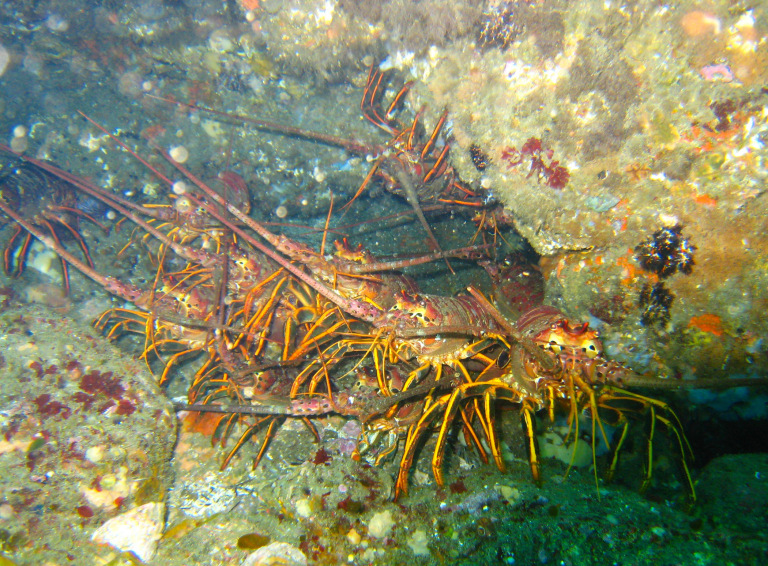From Sportfishing
Fish Report for 11-24-2017

Is Lobster Poaching from Commercial Traps a Felony?
11-24-2017
CDFW
Question: I recently heard that a recreational lobster diver who takes lobster from a commercial lobster trap could be arrested and booked into jail on felony charges. Is this true? (Anonymous diver, Orange County)
Answer: Yes, it’s true. California Penal Code, section 487 includes several subsections that describe Grand Theft, which is in fact, a felony. A recreational diver who steals fish, shellfish, mollusks, crustaceans, kelp, algae or other aquacultural products from a commercial or research operation which is producing that product of a value exceeding $250, has committed a felony. So in addition to theft from commercial lobster traps, this also covers theft from commercial crab traps, and theft from an aquaculture facility.
You’d be surprised how easily the value of those lobsters can add up. The per pound price of California harvested spiny lobsters is as much as $32 per pound in November 2017. But even theft of less than $250 worth of lobster from a commercial trap potentially involves misdemeanor-level violations, including theft, and disturbing another person’s traps (California Fish and Game Code, section 9002). Technically the penalties and fines for each misdemeanor conviction could amount to a sentence of six months in jail and a fine of up to $1,000. Another important note: two or more recreational divers who conspire together to commit the misdemeanor violation of stealing lobsters from a commercial trap, and steal a total amount of lobsters that exceed the $250 threshold, are also both potentially guilty of felonies. California law and California wildlife officers take the violation of stealing from commercial fishermens’ traps very seriously. In addition to being illegal, this behavior is unethical and unsportsmanlike. If you come across an underwater trap, leave it alone!
The vast majority of lobster anglers, whether divers or hoop netters, are law-abiding. The California Department of Fish and Wildlife website includes a lobster information webpage to help lobster enthusiasts stay within the law and have a safe, enjoyable lobster fishing experience.
Using a rangefinder on a compound bow
Question: Is it legal to mount a rangefinder on a compound bow when hunting deer or bear? (Roger)
Answer: Scopes with laser rangefinders are not prohibited. Just be sure the device does not project any visible light or electronically intensified light for the purpose of either visibly enhancing an animal or providing a visible point of aim on an animal (California Code of Regulations Title 14, section 353(i)). These devices may be used only for the take of nongame and furbearing mammals as provided in the Mammal Hunting Regulations (CCR Title 14, section 264.5).
Trapping minnows for bait
Question: Is it legal under a California fishing license to trap minnows using basic minnow traps? The minnows would be used for targeted game fish (striped bass). I see regulations for commercial minnow trapping but not non-commercial. (Michael N.)
Answer: The term “minnow” often is used to refer to many different species of small baitfish, some of which belong to the minnow family. Depending upon where in the state you plan to use the minnows and, more specifically, which species of minnow (e.g. longjaw mudsucker, fathead minnow, Mississippi silverside, etc.), you will need to check the appropriate baitfish regulations that apply to the specific waters where you intend to fish (CCR Title 14, section 4.25).
That said, approved baitfish may be taken by hand, with a dip net, or with traps not over three feet in greatest dimension (CCR Title 14, section 4.05).
< Previous Report Next Report >
More Reports

11-22-2017
The California Department of Fish and Wildlife (CDFW) has released a draft of the Statewide Elk Conservation and Management Plan for public...... Read More

11-21-2017
The California Department of Fish and Wildlife (CDFW) today announced the selection of four projects to receive funding for habitat...... Read More

Website Hosting and Design provided by TECK.net